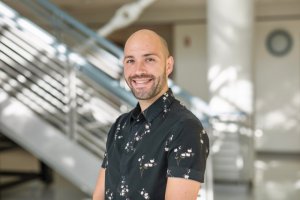Presented By: Department of Psychology
Biopsychology Colloquium - Non-canonical roles for endogenous opioids in affect and motivation
Dr. Daniel C. Castro, Assistant Professor of Radiology, Washington University School of Medicine in St. Louis

In 2020, abuse of prescription and illicit opioids resulted in nearly 70,000 deaths in the United States. The transition from therapeutic to abusive opioid use occurs through the maladaptive activation of mesocorticolimbic structures, such as the nucleus accumbens medial shell (mNAcSh) in the ventral forebrain. Within mNAcSh, mu opioid receptor (MOPR) stimulation can powerfully modulate reward related behaviors, such as food intake, social interaction, or drug seeking. While extensive insights into opioid function were established in the late 20th century, the application of new technologies and clinical meta-analyses make it increasingly clear that the functional heuristics that have guided opioid biomedical research may be flawed. Here we explore how seemingly conflicting scientific literature from the 20th and 21st centuries may instead work together to provide new insights into how opioids function in the brain and periphery, with a special emphasis on mesocorticolimbic neural circuits and technology development.